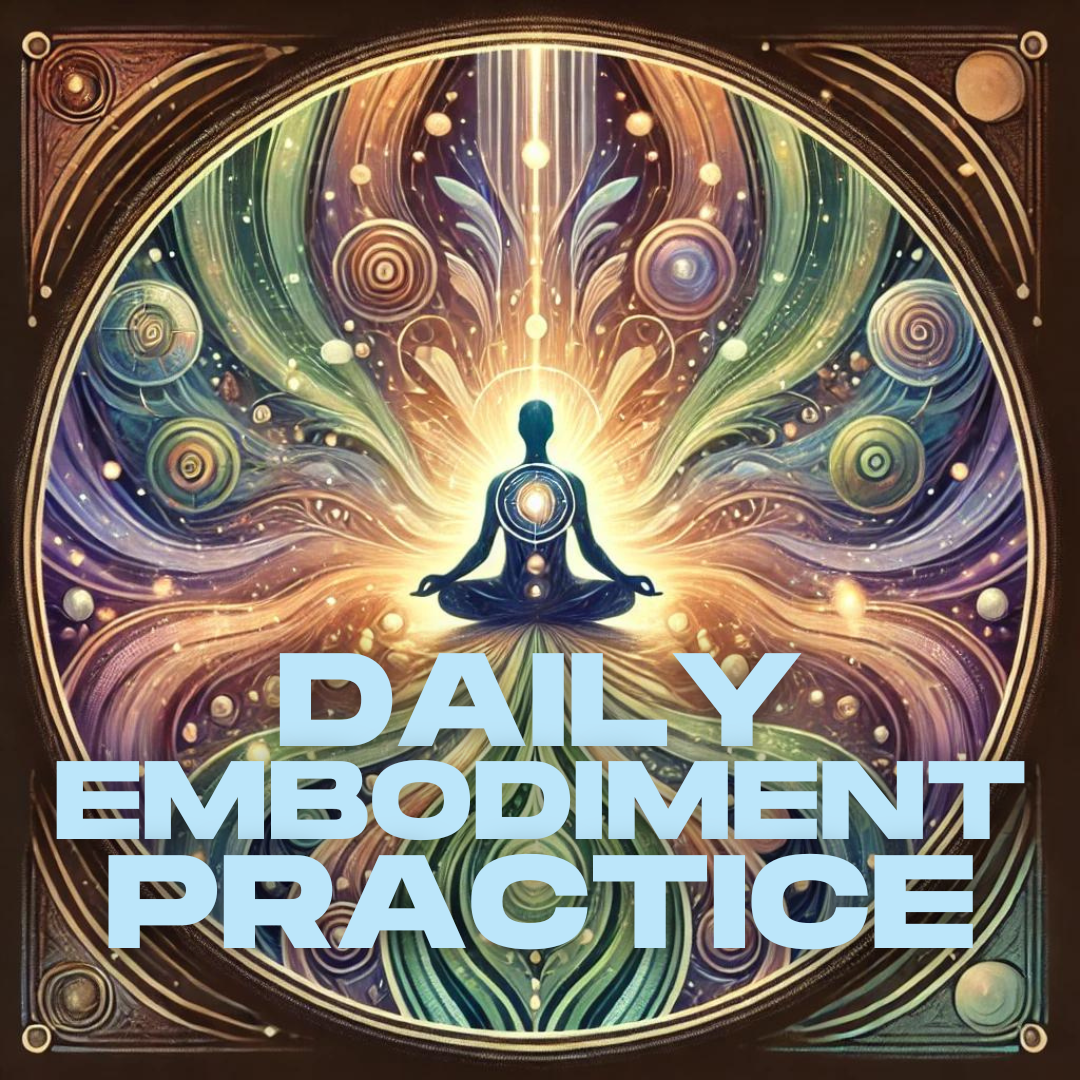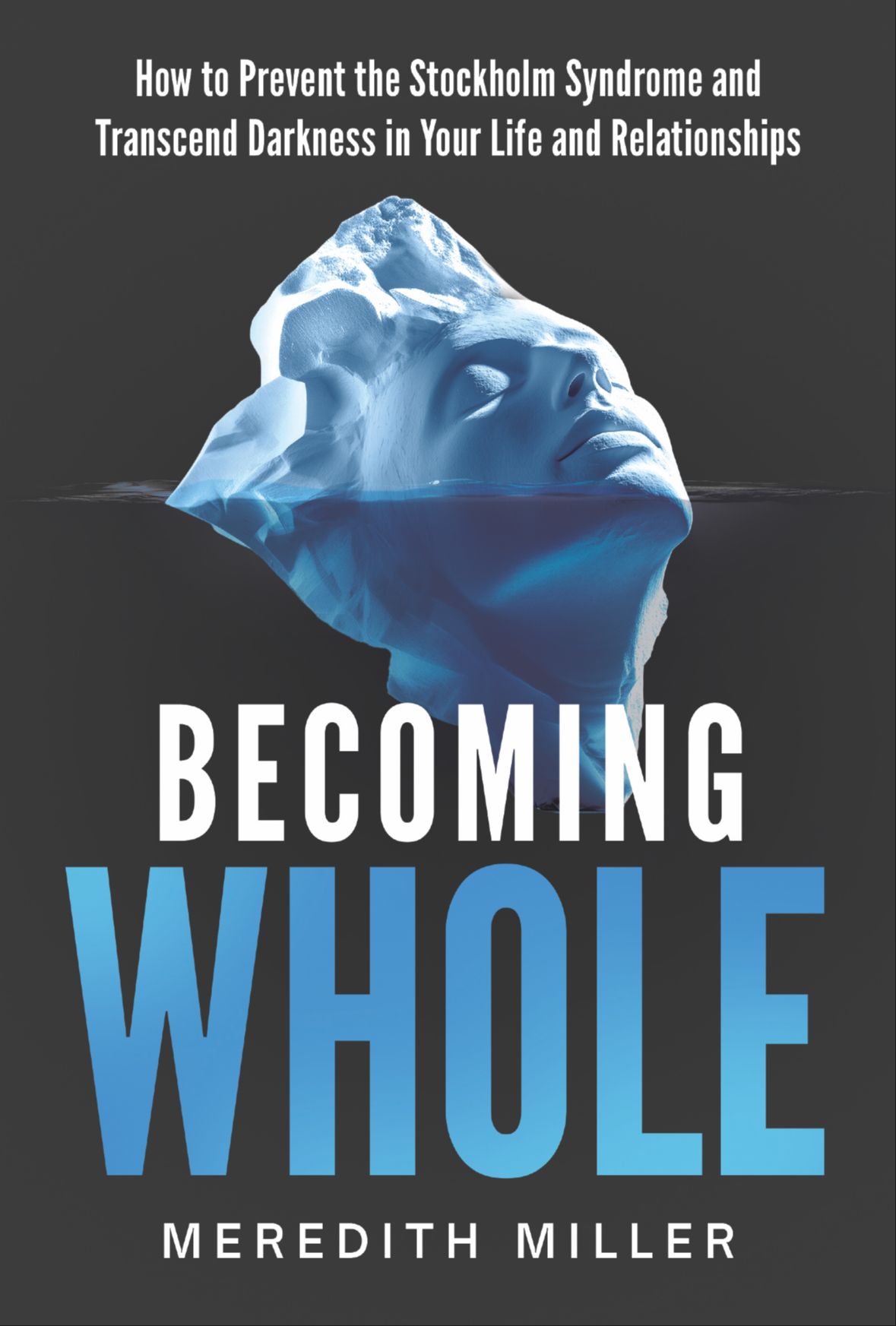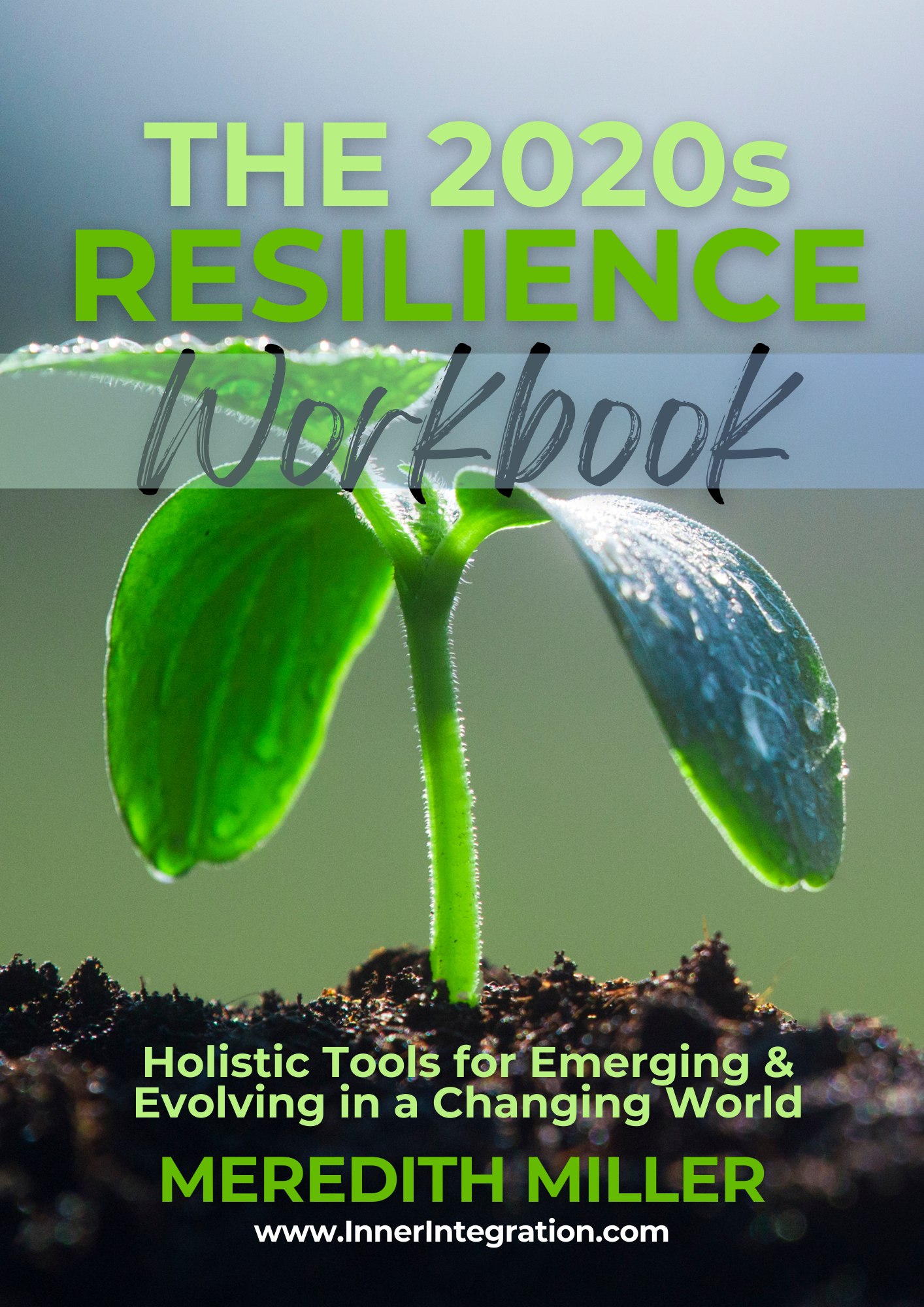Setting Boundaries Around Your Compassion

People who identify as empaths often struggle to put boundaries around their compassion, which can lead to impulsive people-pleasing and chronic illness.
Compassion is defined in the Merriam-Webster dictionary as "a sympathetic consciousness of others’ distress together with a desire to alleviate it.”
You might identify with feeling like you have to rescue others from their pain and struggles in life. That might even seem like the noble thing to do. However, when you try to rescue someone from their pain, you’re not helping them and you’re not helping yourself either. You don’t have to carry around the burdens that belong to someone else. That’s not your responsibility. Having boundaries around your compassion is important, especially when you’re dealing with manipulative people or when you tend to put others needs and feelings before yours.
If it feels really uncomfortable to imagine yourself not doing that anymore, this episode is going to help you develop better boundaries around your compassion so you can be the empathic person you are, and also be healthy.
Compassion fatigue is often what happens to professional caretakers who witness a lot of other people’s trauma. Compassion fatigue is due to poor boundaries and a lack of sufficient self-care while a person is exposed to emotionally or physically intense situations. 86% of ER nurses have compassion fatigue.
The same kind of compassion fatigue can happen to you if you're in a relationship with a manipulative, abusive person because you’re constantly putting out their dumpster fires and abandoning yourself in the process. This is especially true if you were raised by a parent or care-taker to do exactly that since childhood.
Codependency is a compulsion to take care of and rescue others. It’s an impulsive form of people-pleasing. This impulsive compassion is based on an external focus or “other-directedness” where a person is more focused on others than themselves, more aware of others’ needs and feelings than their own. That kind of programming in childhood sets a person up for a lifetime of abuse and manipulation because abusers can quickly identify people who are more focused on others than themselves. Often codependents care-take others, even abusive people, in an effort to feel needed and worthy because this is what we were programmed to do since childhood. However people-pleasing and care-taking manipulative people will give you a false sense of self-worth. You might have been taught since childhood that your only worth was in how you rescued your mother or father, how you met their needs and honored their feelings before your own. This will lead to compassion fatigue.
True self-worth comes from knowing your values and setting up standards and boundaries to protect those values. If you want to work on rebuilding your self-worth in a healthy way, check out my course, Raising Your Self-Worth. You’ll get the tools you need to put these important steps into practice immediately and start rebuilding your self-worth today. The link for Raising Your Self-Worth is in the show notes and you’ll also find it on the homepage.
So how does compassion become toxic?
Compassion itself isn’t toxic. It’s a lovely quality. However, just like kindness, empathy and other great qualities, they can become dangerous to your wellbeing when you extend these to people who are hurting you.
If you continue to be kind to someone who’s abusing you, that doesn’t earn you the title of saint, it actually makes you foolish because in doing so you’re opening yourself to get hurt more. Now I’m not saying to go out of your way to be mean or hurtful to them instead, what I mean is you need boundaries around your virtues lest they become detrimental to your wellbeing. When you have empathy for an abuser, you’ll lose yourself in the process. When you extend your compassion to someone who is hurting you, you’ll find yourself in a situation of inevitable harm. Boundaries can help you avoid these pitfalls.
Yes, it’s good to lead with kindness, empathy and compassion however if you notice that these qualities are not being respected by someone, that’s your cue to recognize that you don’t need to be a martyr. You don’t need to put up with that and when someone is hurting you, they are not entitled to your empathy, compassion and kindness. Again it’s not about being hurtful back to them or giving them a taste of their own medicine, instead you can switch into indifference by setting boundaries. You can set boundaries that protect you from sharing your vulnerability with those who don’t deserve it. It’s not your job to save the world or transform monsters into decent human beings. You’re allowed to opt out.
As Maya Angelou says, “When someone shows you who they are, believe them the first time.”
Now I know sometimes we may choose to give someone a second chance or even apply a 3-strike rule to be sure we’ve given them enough benefit of the doubt before writing them off.
Other times there are things so horrible that someone does that those become one-and-done kinds of situations. Physical or sexual abuse would be examples of this. No second chances.
Other times you might feel that a person made a mistake so you offer them a second chance. Maybe they flaked out on a date or appointment you had, or maybe they said something to you that was offensive but they were willing to hear you and understand how it’s unacceptable for you so they vowed not to do it again.
In some cases you might feel that a person deserves 3 chances because whatever they did wasn’t horrible but it’s something you’d rather not entertain in a relationship. This is up to you and your discretion. Just be careful that you aren’t justifying or minimizing truly unacceptable behavior because you like someone and want them to become the person they are in your fantasy but will never be in real life.
Be sure you’re not taking responsibility for someone else’s life issues. This is the struggle of codependency. If you find yourself making excuses for another person’s poor behavior, rescuing them from their problems, or sacrificing yourself to take care of them, then you’re lacking boundaries around your compassion. Chances are you’re doing all of those things because you love and care about them. However you’re doing so to the detriment of yourself. That’s not love, that’s self-abandonment and codependency.
Kindness, empathy and compassion are no longer virtues when it comes to sharing these with abusive people. That’s when they can become toxic for your safety and wellbeing.
Jordan Peterson says “undifferentiated empathy is not a virtue. Use compassion judiciously.” He also says, “Do not do for anyone what they can do themselves.” Why does he say that? Because you take away their independence. In those cases, you’re actually doing them a disservice. Now that applies even in cases where the person isn’t abusive and manipulative. Peterson says this can apply to the elderly and children, for example. Maybe you can do something much faster than they can for themselves, like feeding them, but it’s better for them to work it out for themselves even though it takes longer and it pains you to watch them struggle. By not doing it for them, you’re giving them dignity and a sense of independence.
There are also negative effects on you as the care-taker when you don’t have boundaries around your compassion, whether you’re dealing with a manipulator or not.
Situations when compassion becomes toxic:
-
You keep extending your compassion to people who are hurting you, people who don’t deserve your compassion.
-
You take on someone else’s responsibility as your own in order to rescue them.
-
You’re overextending your energy, time and other resources to others and then not leaving enough for yourself.
-
You keep giving and complaining that the other person took advantage of you but you aren’t owning your responsibility to manage your energy and time with boundaries.
-
Physician, Dr. Gabor Maté says, “The chronic compulsion to people-please leads to chronic illness.”
-
negative attitude or outlook on life
-
exhaustion
-
decrease in productivity and function
-
chronic pain
-
chronic illness without organic causes
-
anhedonia (loss of pleasure)
-
anxiety, stress, tension
-
emotional outbursts when things build up
-
being short or irritable with others
-
eventually need someone to rescue you after the burnout
-
Understand that boundaries are self-responsible not selfish. Boundaries are healthy and everyone needs them. If you’re in a care-taking profession, then you need next level boundaries because every day you’re faced with the struggles and feelings of other’s suffering. You can’t take their stuff on as your own otherwise you won’t be functional in your work. If you’re recovering after an abusive relationship, start working on setting more boundaries with others so you can focus on your recovery. You’ll need boundaries for each layer of your human experience. Your boundaries will be physical (your space, body, touch, sex, accepting visitors, time investment), emotional (not tethering yourself to others’ emotional states, not giving into the fear intimidation, the guilt-tripping or shaming if you don’t do what they want), mental (not allowing them to sow the seeds of doubt in your mind, not accepting their beliefs if you don’t agree with it, not falling into their gaslighting and manipulation of your perception of reality), and also spiritual (authenticity, being who you are and not a role someone else wants you to fill, your self-expression, compassion and love).
-
Self-responsibility comes first. If you’re not well, you can’t help others or sustain your livelihood, whether you work in a care taking profession or not. If you aren’t healthy it’s hard to work and earn a living. If you’re not well, how are you going to take care of your kids and be the parent you want to be? If you’re not well, you won’t be able to experience states of empowerment or thriving. Self-responsibility is the shift out of victimhood and into survivorship.
-
Implement radical self-care. Self-care is the main work of recovery after abuse. In order to make time for this, you’ll need to set boundaries to protect that time. If you identify with being a people-pleaser and want to create a new relationship with yourself and eradicate your self-abandoning habits, check out my Self-Care Mastery Course. This 4-hour long video course will help you to address the roots of the issues caused by narcissistic abuse since childhood. You’ll find the link in the show notes and you’ll also find more info on the homepage.
-
Stay in your lane. Don’t rescue other people from their feelings or their life. You can care about people without taking on their problems and pain. You can hold space for them to feel what they feel, without taking responsibility for it. You can observe them without attachment to their feelings or rescuing them. Start working on your discernment. When your’e not sure, ask yourself: Is that mine or not? Often times we are trying to fix others because it seems to be the noble thing to do or because it’s easier than facing our own problems and taking care of ourselves but really what we are doing is avoiding the responsibility of fixing ourselves. When you feel a desire to rescue someone else who is struggling, ask yourself why. What do you get out of that? Avoiding your own problems? Martyr status? Feeling needed? A sense of security in a relationship? Find out what your motivation is to do that, then you can see what you need to work on in yourself.











